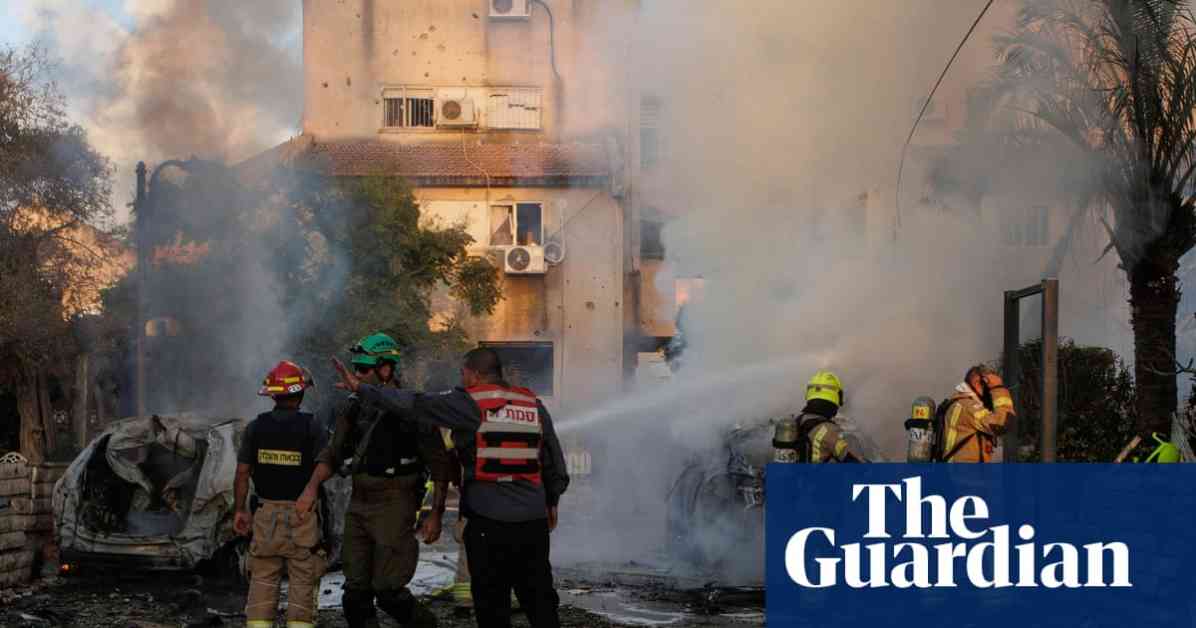Hezbollah’s Escalation with Israel: Global Pleas for Restraint
The recent clashes between Hezbollah and Israel have escalated tensions in the region, with both sides engaging in intense military actions. Hezbollah has declared an “open-ended battle of reckoning” with Israel, following a series of rocket attacks on the northern part of the country. In response, Israeli warplanes carried out a significant bombardment in southern Lebanon, marking the most intense military exchange in almost a year.
Global Calls for De-escalation
As the conflict intensifies, world powers have urged both parties to exercise restraint and avoid further escalation that could lead to all-out war. UN Secretary-General António Guterres warned of the risk of turning Lebanon into another Gaza, emphasizing the need for a peaceful resolution to the crisis.
During a funeral for a top Hezbollah commander killed in an Israeli strike, Hezbollah’s deputy secretary-general, Naim Qassem, reaffirmed the group’s commitment to continue the fight against Israel. Despite calls for de-escalation from politicians in Beirut, Israeli Prime Minister Benjamin Netanyahu remained firm in his stance, vowing to take necessary measures to restore security for Israeli citizens.
Humanitarian Impact of the Conflict
The ongoing clashes have had a devastating impact on civilians in both Lebanon and Israel. More than 100,000 residents in border villages have been forced to flee their homes as a result of the escalating violence. Reports of casualties and injuries on both sides have highlighted the urgent need for a ceasefire to prevent further loss of life.
In northern Israel, hospitals have been advised to transfer operations to secure facilities to protect patients from rocket attacks. Medical teams are on high alert, preparing for an influx of patients requiring urgent care. The growing humanitarian crisis underscores the importance of finding a peaceful resolution to the conflict.
Regional Implications and International Response
The conflict between Hezbollah and Israel is unfolding against the backdrop of ongoing tensions between Israel and Hamas in Gaza. The recent airstrike on a school in Gaza City that resulted in the death of seven people has further exacerbated the humanitarian crisis in the region. The international community has called for an urgent ceasefire to prevent further loss of life and facilitate diplomatic efforts to resolve the conflict.
World powers, including the United States and the European Union, have called for de-escalation and renewed diplomatic efforts to bring an end to the violence. The lack of desire for peace on both sides, as noted by UN Secretary-General Guterres, highlights the urgent need for a ceasefire and a lasting political settlement to ensure the safety and security of civilians in the region.
In conclusion, the escalating conflict between Hezbollah and Israel has raised serious concerns about the humanitarian impact of the violence and the need for immediate action to prevent further loss of life. The global calls for restraint and diplomatic efforts underscore the importance of finding a peaceful resolution to the crisis. It is imperative for both parties to prioritize the safety and well-being of civilians and work towards a sustainable ceasefire and lasting peace in the region.












